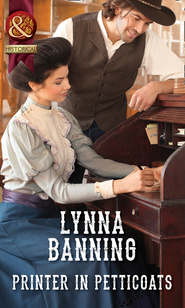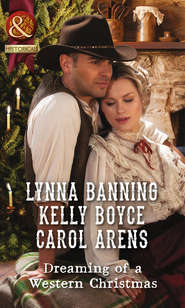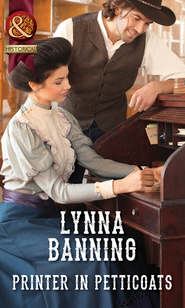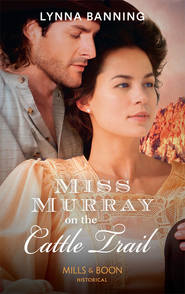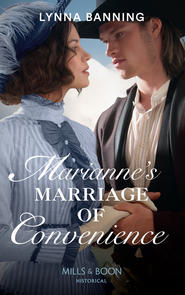По всем вопросам обращайтесь на: info@litportal.ru
(©) 2003-2025.
✖
Wildwood
Настройки чтения
Размер шрифта
Высота строк
Поля
Jessamyn blinked. “Belonged? You mean you were—”
“Oh, no, ma’am. Not a slave. My daddy was the overseer for Mr. Kearney. All of us—my mother and my brother and my sisters—we grew up on the Kearney plantation. When the war broke out, Mr. Ben, the colonel, joined his regiment. I joined up with him. We rode out the gate together, and I never looked back on that dogtrot house I was raised in ‘ceptin’ once.”
Jessamyn stared at him.
“Miss Whittaker, if you’ll just tell me where you want this whiskey…”
“Oh, yes, the whiskey!” She tore her gaze from Jeremiah’s no longer smiling face and stepped up onto the boardwalk in front of the newspaper office. “In here, please.” She bent to insert the key.
The lock stuck. She jiggled it three or four times before Jeremiah leaned his shotgun against the wall and stepped forward. He gripped the knob with his square fingers.
“Gotta lift up, Miss Jessamyn. Sometimes that lock gets the crotchets.” He gave a little nudge and the door swung inward.
Jessamyn set her parasol on the battered desk, turned and lifted the whiskey out of Jeremiah’s hands.
“I am in your debt, Jeremiah.”
“It’s gettin’ on toward suppertime. You gonna clean that press now?”
“I am. I live with Mrs. Boult. She’ll keep my supper waiting.”
“Mind if I stay and…help out? It’ll be full dark before you finish. I’ll just step over to the sheriff’s office an’ bring a coal lamp to see by.”
Jessamyn regarded the sheriff’s deputy with interest. Was he intrigued by the workings of the printing press? Or was he tactfully offering to stand guard over her?
Maybe both.
Part of her rebelled at the assumption that she needed protection. But another, larger part of her liked the fact that he was interested enough in the Wildwood Times to give up his evening and help her clean the press. Anyone who liked newspaper publishing was a potential friend. Jeremiah was a kindred spirit.
“Jeremiah, I’d be honored. Why don’t you stop by Mrs. Boult’s and ask her to pack up some supper and bring it over to the office? Tell her I said to include two plates. You will join me, won’t you?”
Without waiting for his answer, Jessamyn donned her work apron and rolled up her sleeves.
Chapter Four (#ulink_861435eb-7126-52ea-9e66-9e9e3c21d46d)
Ben reined in the gelding on a hilltop so green with lush spring vetch it glowed like an emerald in the afternoon light. Land out here in the West wasn’t manicured as it had been in Carolina, at least the way he remembered it before Sheridan marched his marauding troops through. But this Oregon country was beautiful nonetheless. The late-day sun washed luminous fingers of light against the rolling greengold hills. His throat swelled into an ache.
Land, and the crops that could be grown on it, was more precious than gold. And the price more costly. All through history, lives had been laid down for possession of bits of earth. Sometimes he wondered if land—if anything—was worth fighting for. A war took everything a man had, sucked his spirit dry.
He gazed down at the farms and ranches spread over the wide valley below. From his vantage point, Ben picked out the southernmost pasture of the seven-thousand-acre Kearney spread—the one he’d bought after the war. After he’d gone home to North Carolina and found what that Yankee bastard Sheridan had done to the plantation and the life he’d known before.
After that he’d had no stomach for the North’s version of Reconstruction. There was nothing to do then but come out West and start over. He’d worked hard to build a new life.
When his brother, Carleton, later followed him to Oregon, Ben had turned the ranch over to him and his new bride and taken the position General Van Dyke at Fort. Umpqua had offered—Indian agent for the Klamath River tribes.
Carleton had been just old enough to join the militia when the war ended. He was inexperienced as a cattleman, but he learned fast. And Carl had a good wife to help him. His brother, Ben reasoned, would make a success of the ranch. He nodded approvingly at the fenced field of rye below him. Instead of cutting it for hay, in late summer Carl would turn his herd into the enclosure.
As usual, his sister-in-law had invited him to supper this Sunday. Ben’s gut wrenched. Suddenly the last thing he wanted to do was ride down off this hill and join his brother’s family. One evening of watching Ella, her face flushed from the heat of the woodstove in the stifling kitchen as she fussed and puttered around Carl, left Ben restless all the next week. The woman adored his younger brother. And it was just as obvious Ella was the most important thing in Carl’s life.
The most important thing in Ben’s hardworking, solitary life was Wildwood Valley. He knew his presence as sheriff made a difference to the ranchers and townspeople. If nothing else, his reputation as a marksman served as a deterrent to the drifters and unsavory riffraff that occasionally rode into town.
He’d been a good Indian agent, too. But by damn, sometimes he wanted something else, something he couldn’t even name. He wanted it so much it almost suffocated him.
He pulled on the gelding’s reins and turned the horse back toward town. A cold pit of despair yawned in his belly. It was going to be, as Jeremiah often remarked, another two-glass night.
He got as far as Carl’s south pasture on his way to the road when he glimpsed a tiny figure in a blue pinafore skimming over the grass toward him.
“Uncle Ben!”
Ben reined in the dark horse alongside the fence.
“Uncle Ben! Please, can I open the gate for you? Daddy says I’m too little, but I’m not! I can reach way up high. Please?”
Ben shook his head. “Not this time, honey. Tell your mama I’ve got some business in town.” He pulled a bag of penny candy out of his vest pocket and stretched his arm over the fence. “No need to tell her about these, though, is there?”
The child grinned and shook her head. Ben tipped his hat and headed toward the town road.
Jessamyn unbolted the press lever arm and lifted the platen cylinder away from the roller. “Well, would you just look at that,” she murmured. “Clean as a new penny.”
Except for a film of surface dust on the exterior of the black-painted casing, the press was immaculate, the joints and connections free of old grease and dirt. The moving parts had been polished to a shine.
She had to smile. Papa always insisted on keeping his press in perfect working order. Cleanliness, he joked, was right up there next to banner headlines. He wiped his equipment down after every press run.
Still, she wanted to run her hands over every inch of the imposing piece of machinery. The press belonged to her now. It was her responsibility to see to its maintenance. Resolutely she smoothed her starched white work apron and reached for the whiskey bottle and a clean rag.
Jeremiah kept her company while she worked over the huge machine, and then Cora arrived, their supper swinging in a wicker basket over one ample arm. “Here y’are, Miss Jessamyn. There’s plenty here, and more at the house iffen you want it.”
“Thank you, Cora. Will you stay and have some with us?”
The older woman shook her head. “I like my chicken hot, thanky. Mine’s warming in the oven, waitin’ for some pan gravy to go with it. Since you’ve got Jeremiah watchin’ over you, I’ll just go along to my supper.”
She bobbed her gray bun and headed toward the door. “Front door’s unlocked. Jes’ walk on in when you finish—” her china blue eyes took in the disassembled press “—whatever it is you’re doin’. Night, Jessamyn.”
Jeremiah politely held the door for her, and Cora bustled off down the board sidewalk, her solid footsteps reverberating against the pine planking.
Jessamyn corked the half-empty bottle of Child’s and wiped her hands on her apron. “Let’s have supper. I’m starving!”
The deputy declined her offer of a chair at her father’s desk. He ate his fried chicken and potato salad standing up, periodically checking up and down the street through the now-sparkling front window. “Mr. Ben’s gone out to the ranch for supper. I got to keep my eye peeled for any trouble in town.”
“Trouble?” Jessamyn spoke over a mouthful of flavorful potato salad. “What kind of trouble?”
“Just Saturday-night kinda trouble, Miss Jessamyn. Ranch hands in town for a little fun, maybe drink too much and bust up somebody’s head. But this here’s Sunday— won’t likely be any shootin’. That’s why the sheriff rides out Sundays to visit his kin.”
“His younger brother and his wife, is that right?” Jessamyn said. “I met his wife at the mercantile this morning.”
“Yes’m. Mr. Carleton and Miss Ella. An’ Miss Alice. There’s a fine-lookin’ child, ‘cept for her eyes.”
Jessamyn glanced up. “What about her eyes? They looked perfectly normal to me.”






